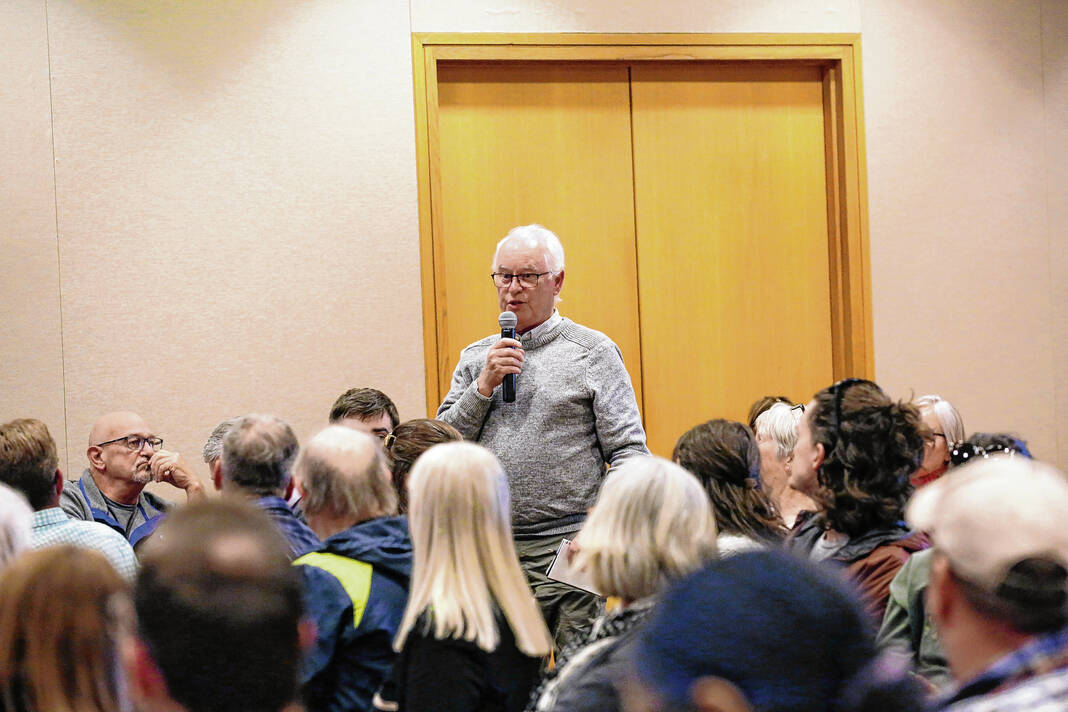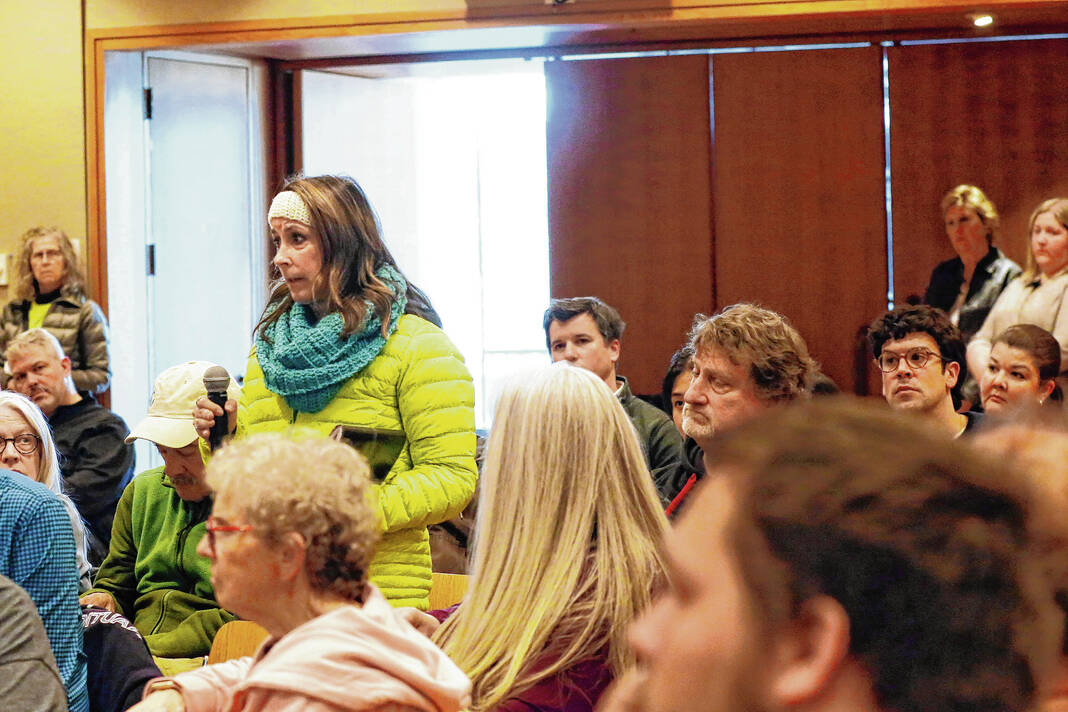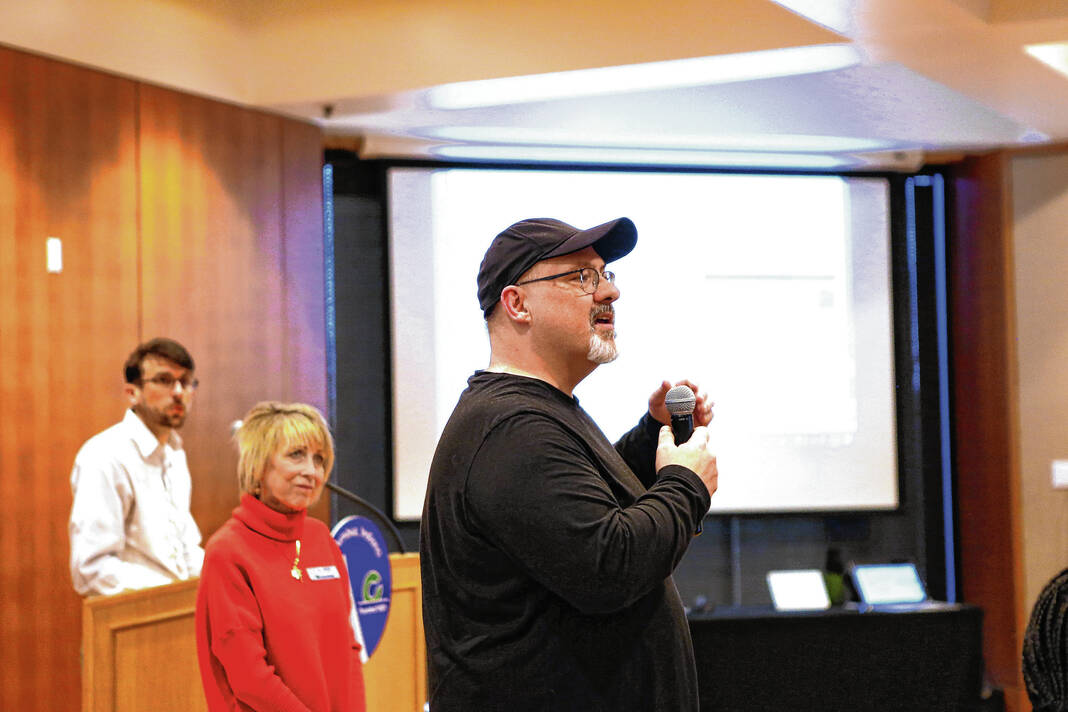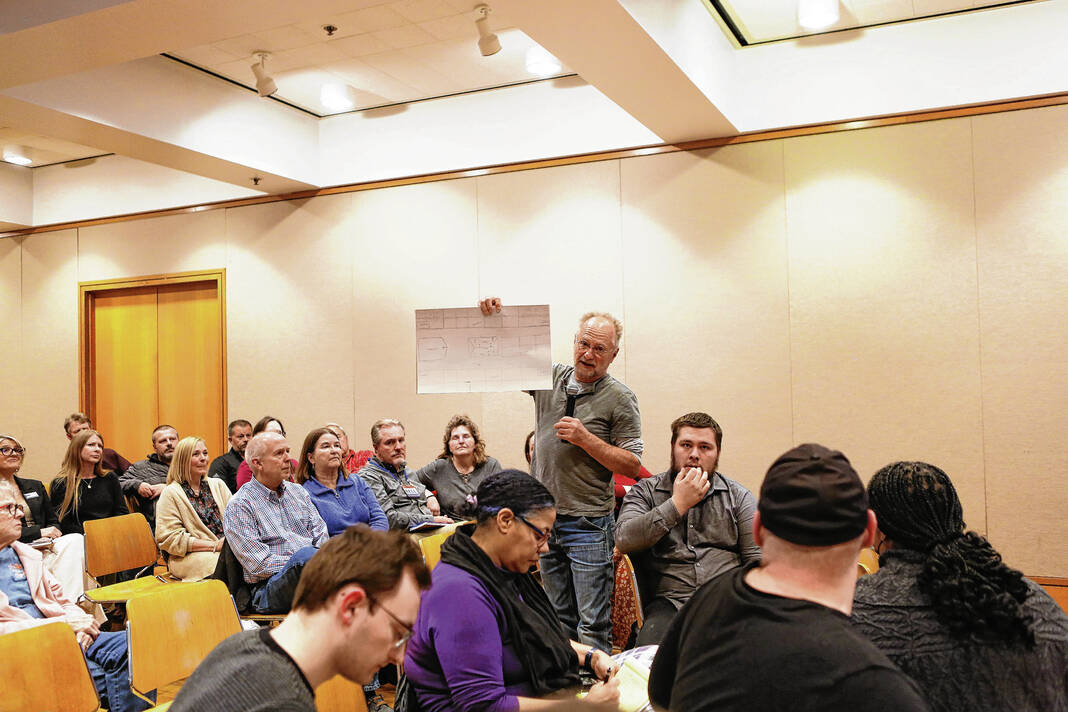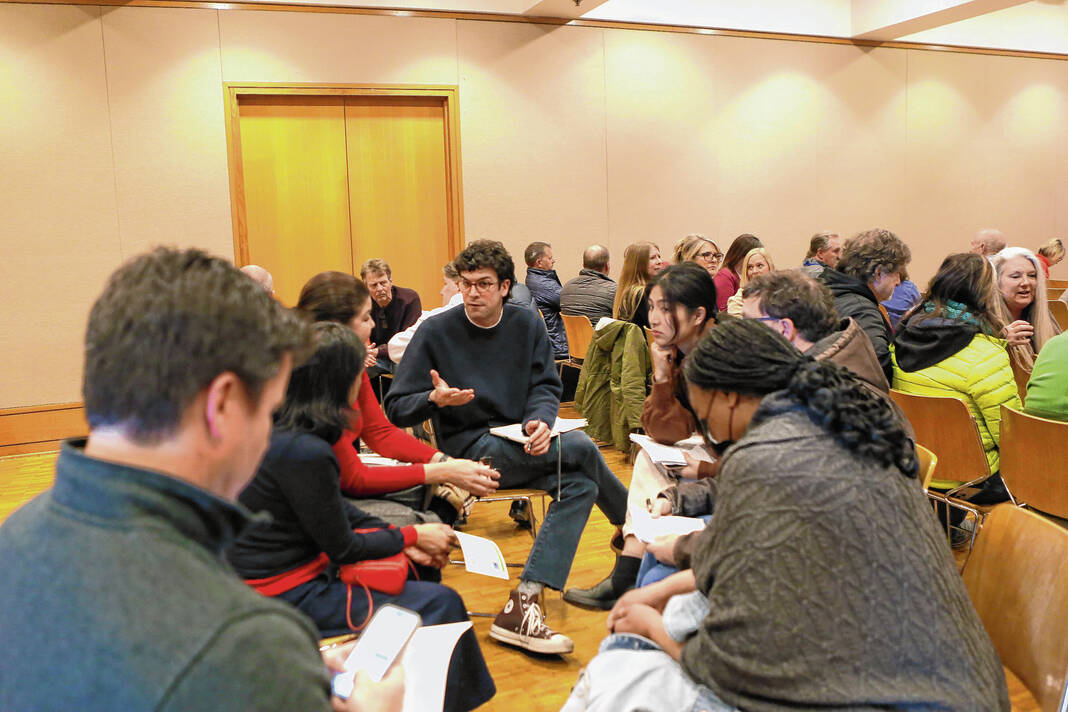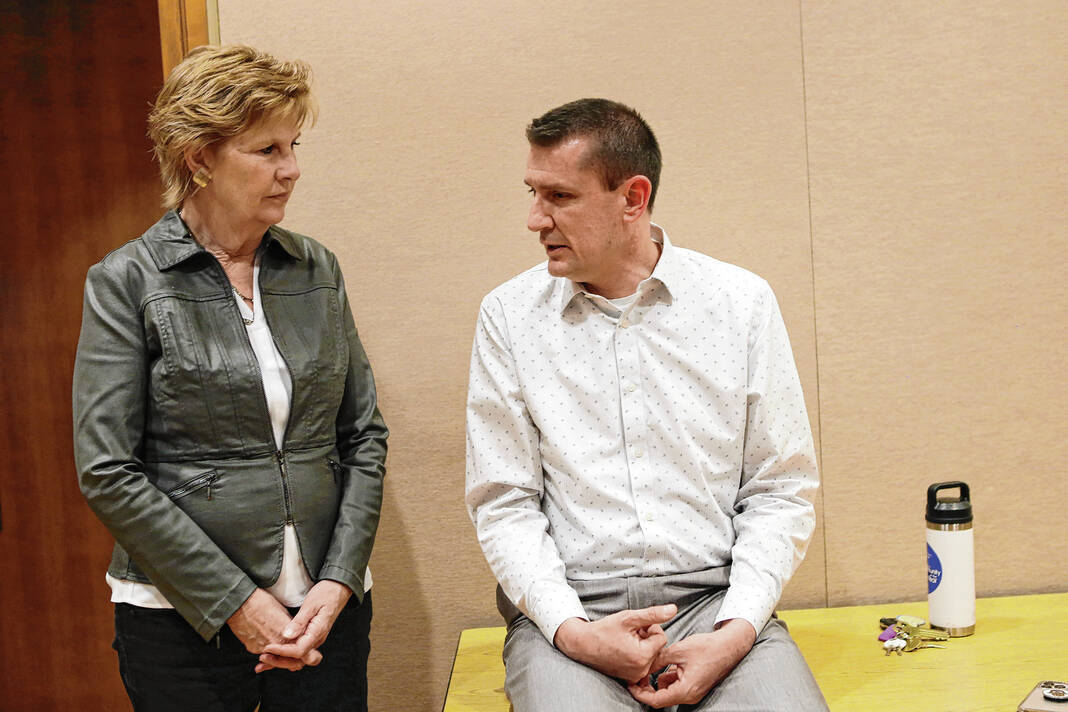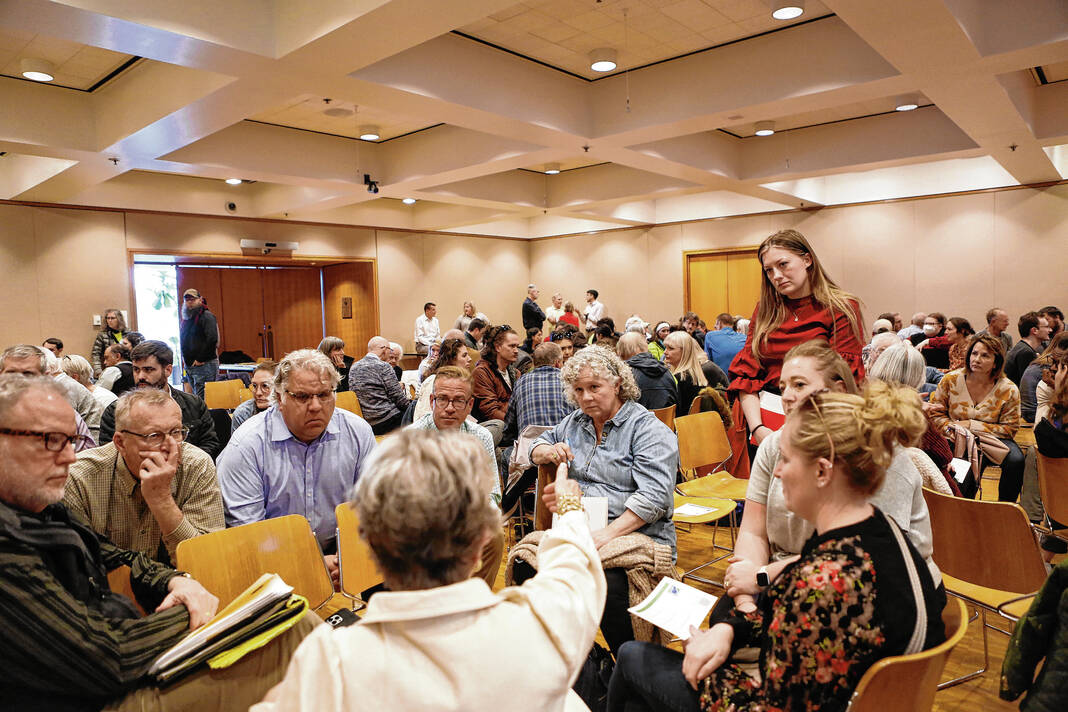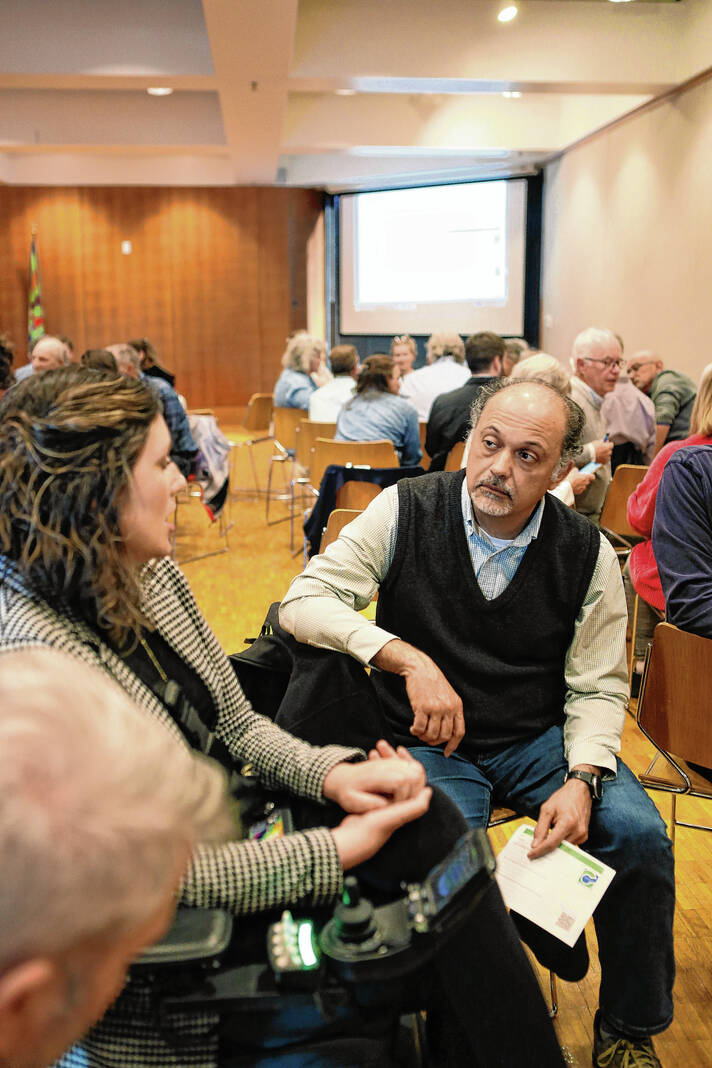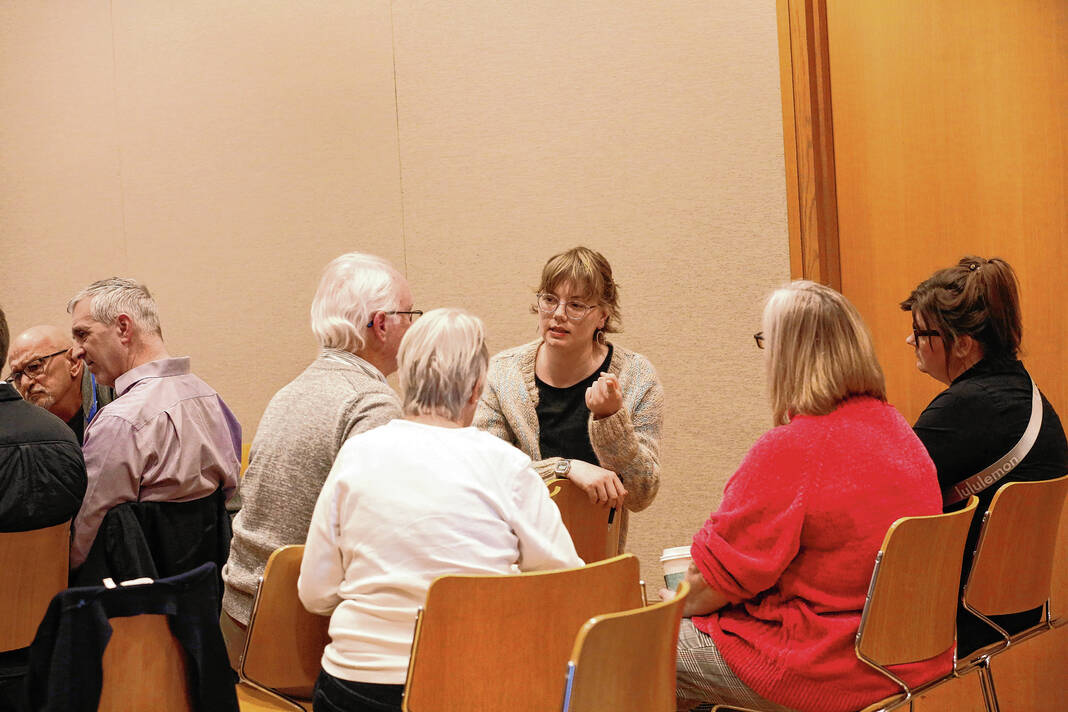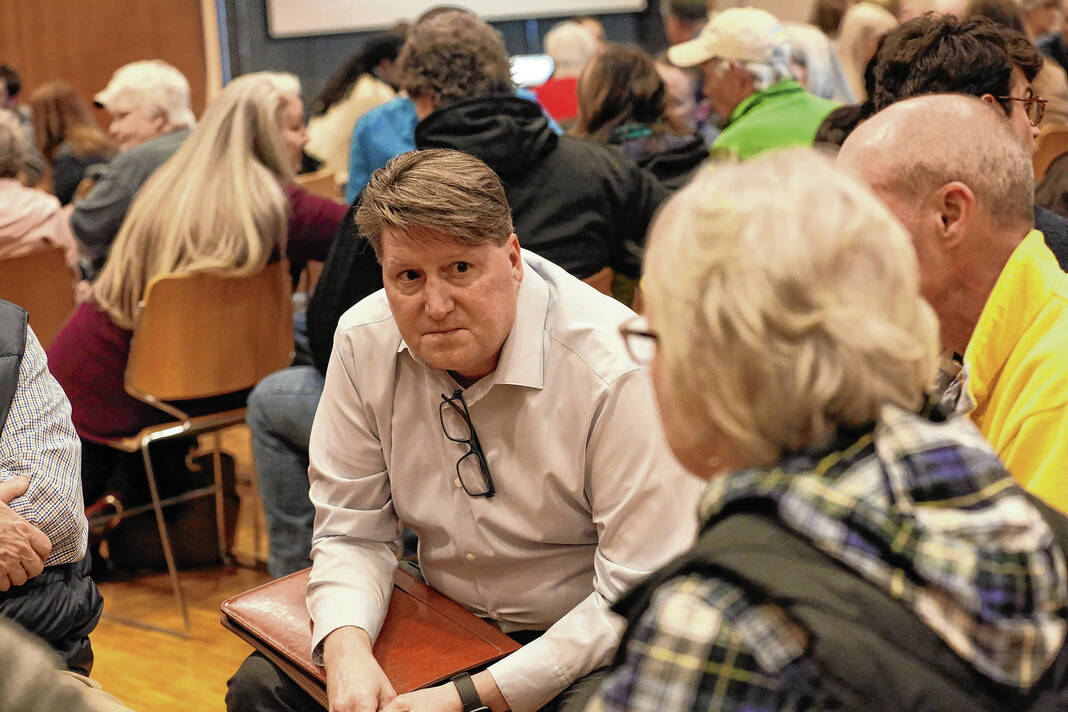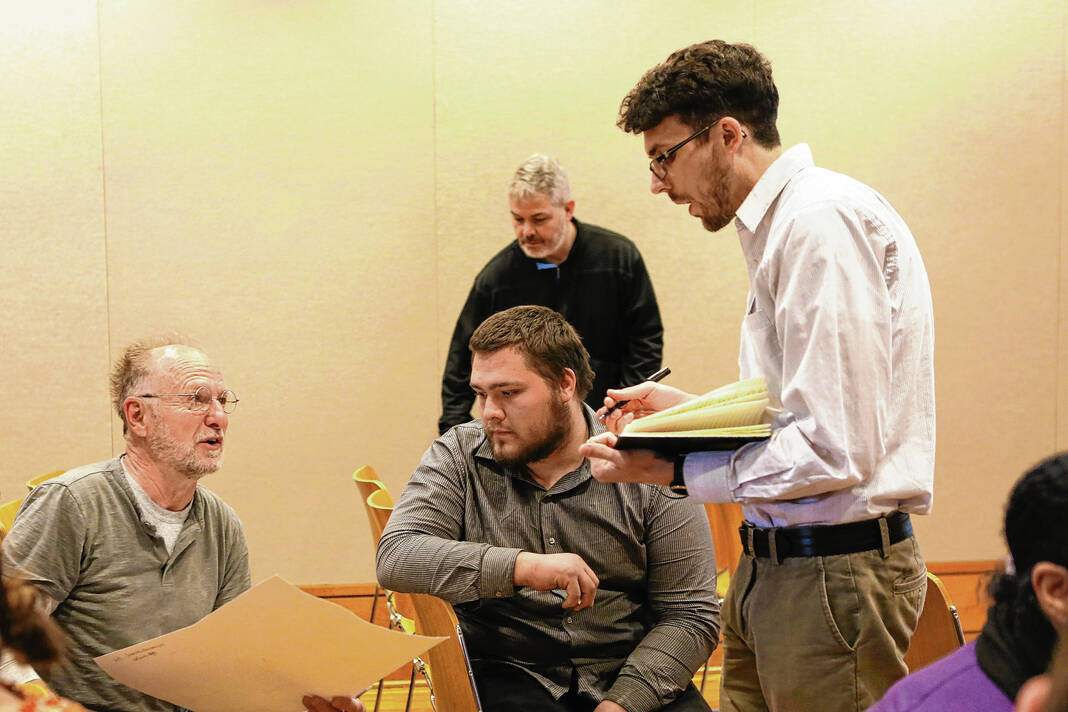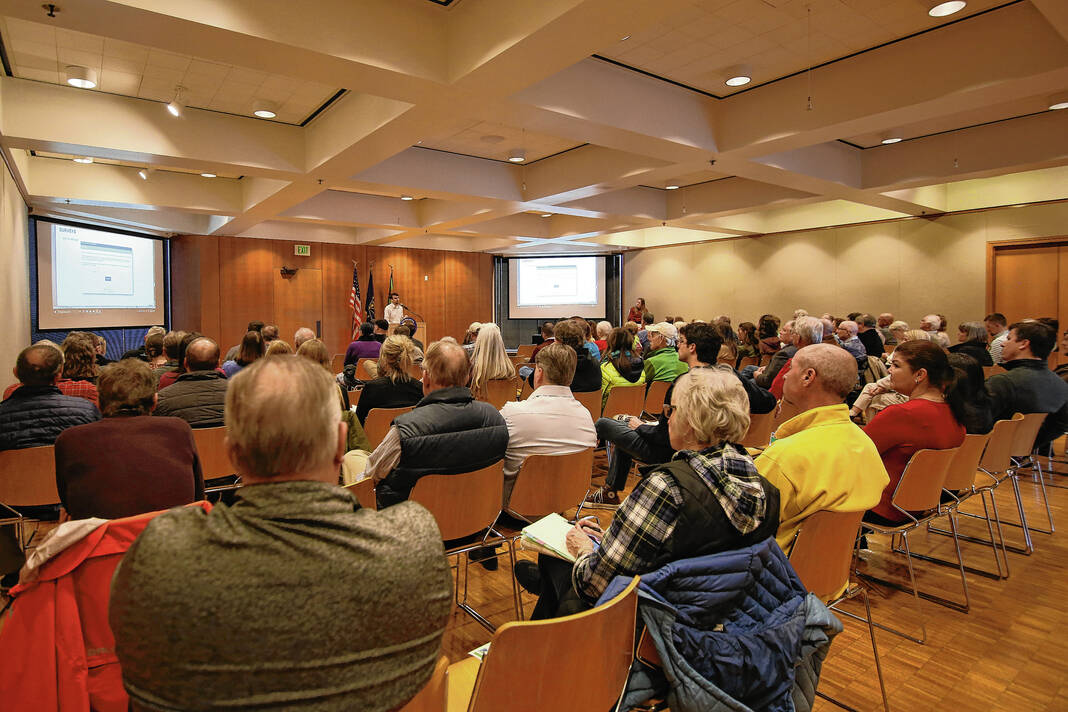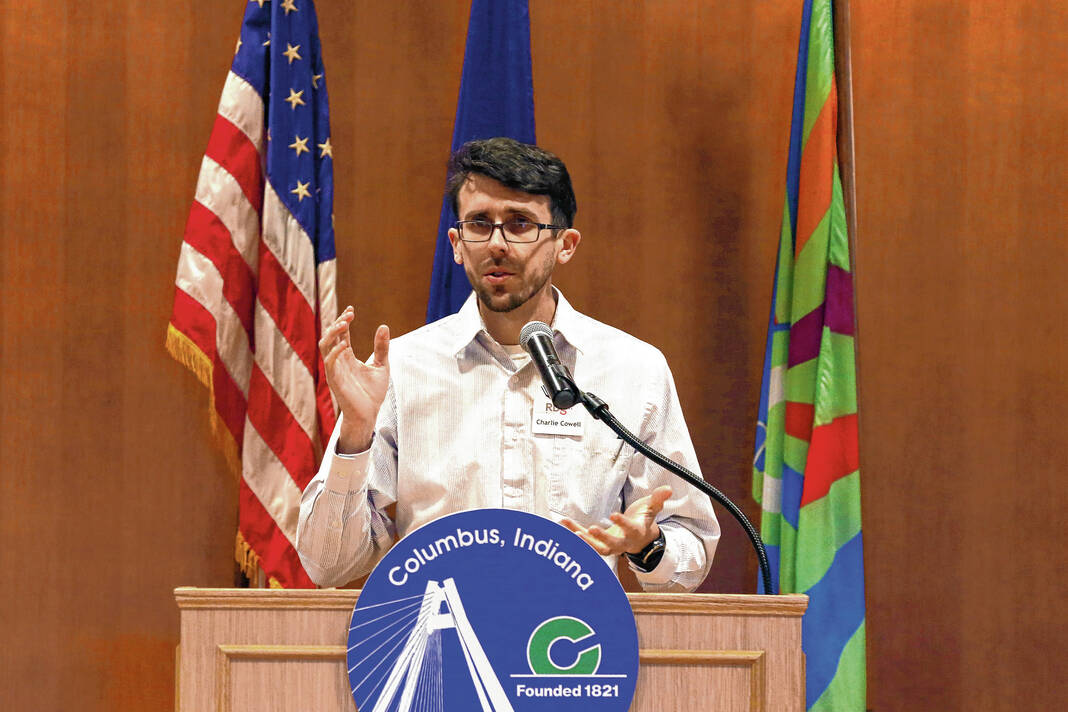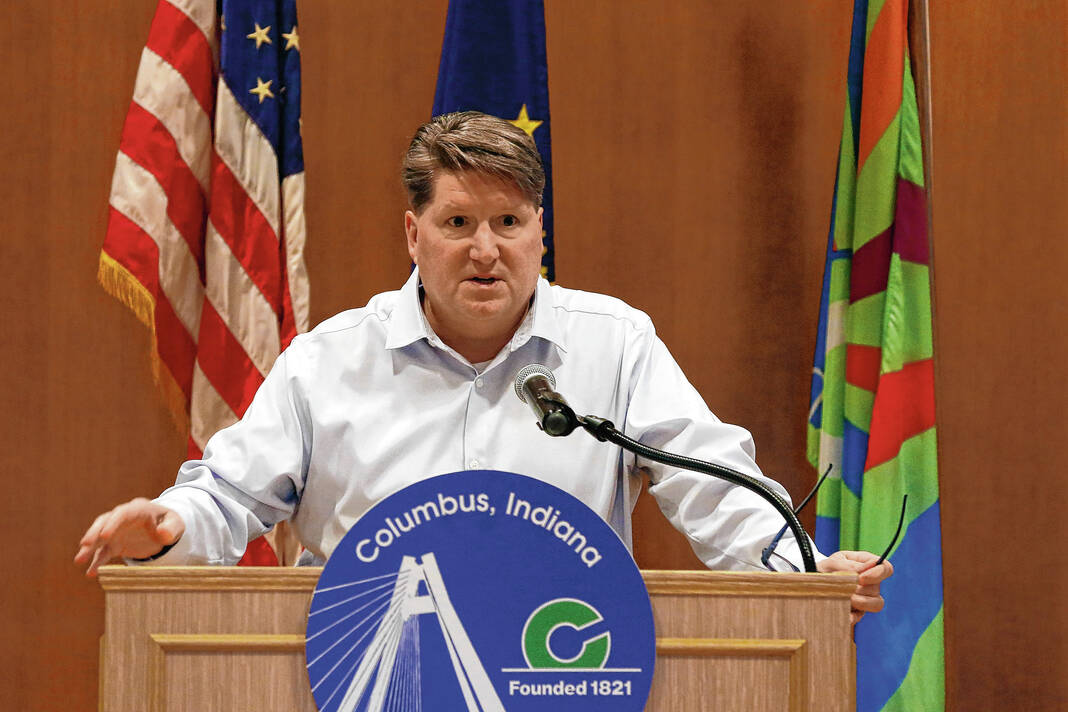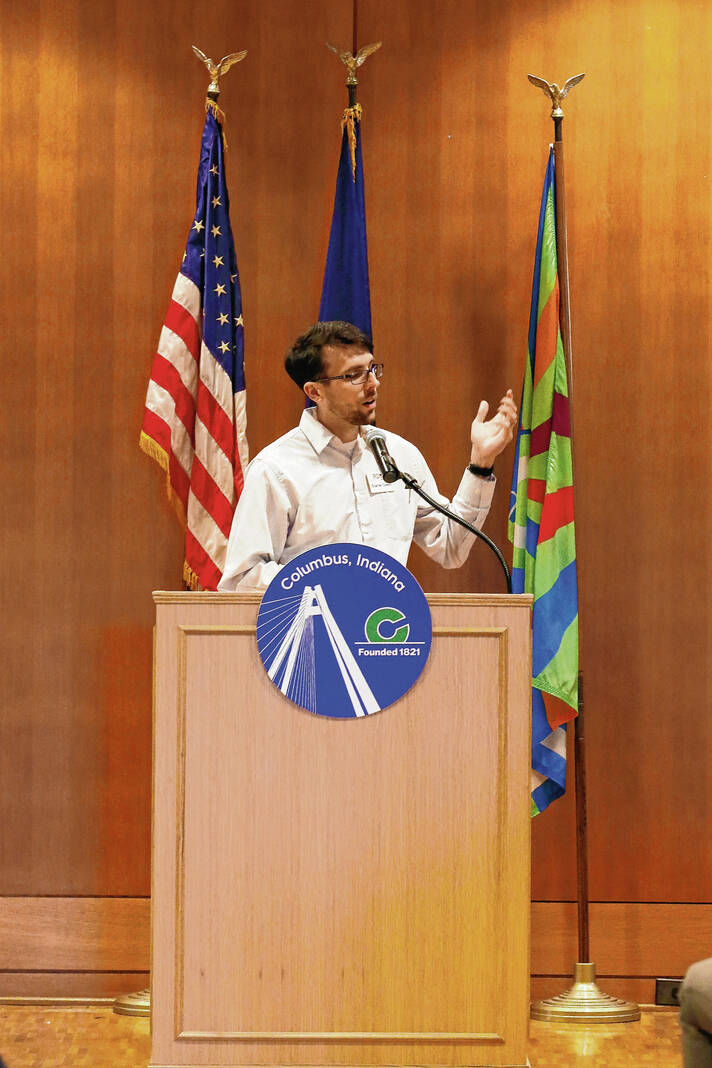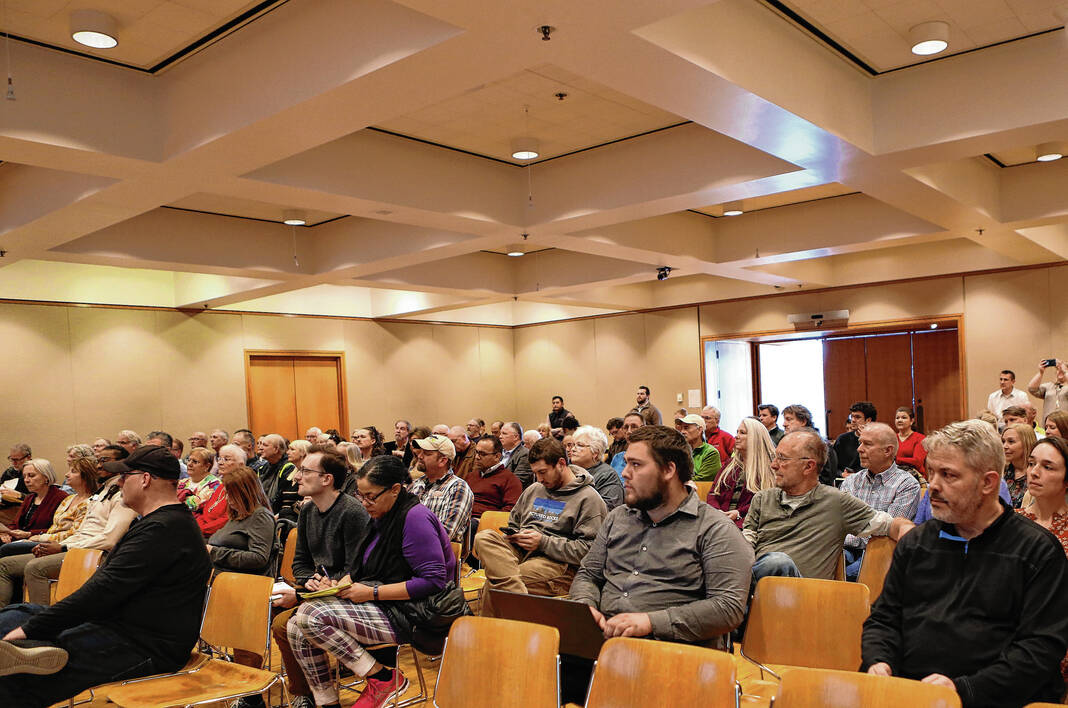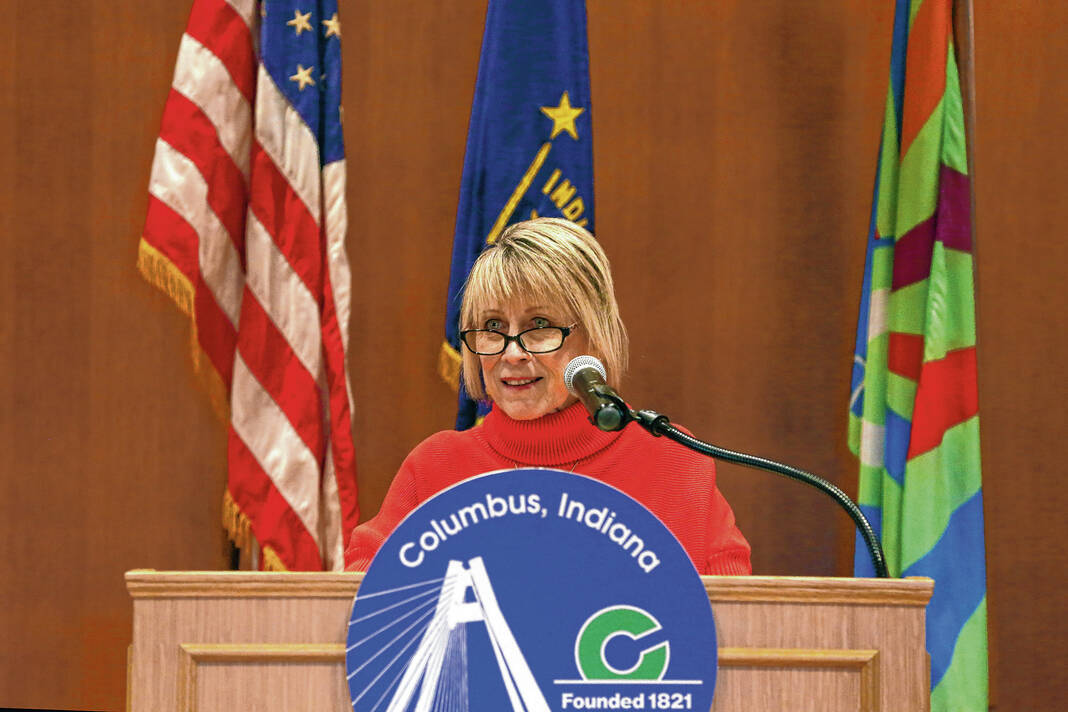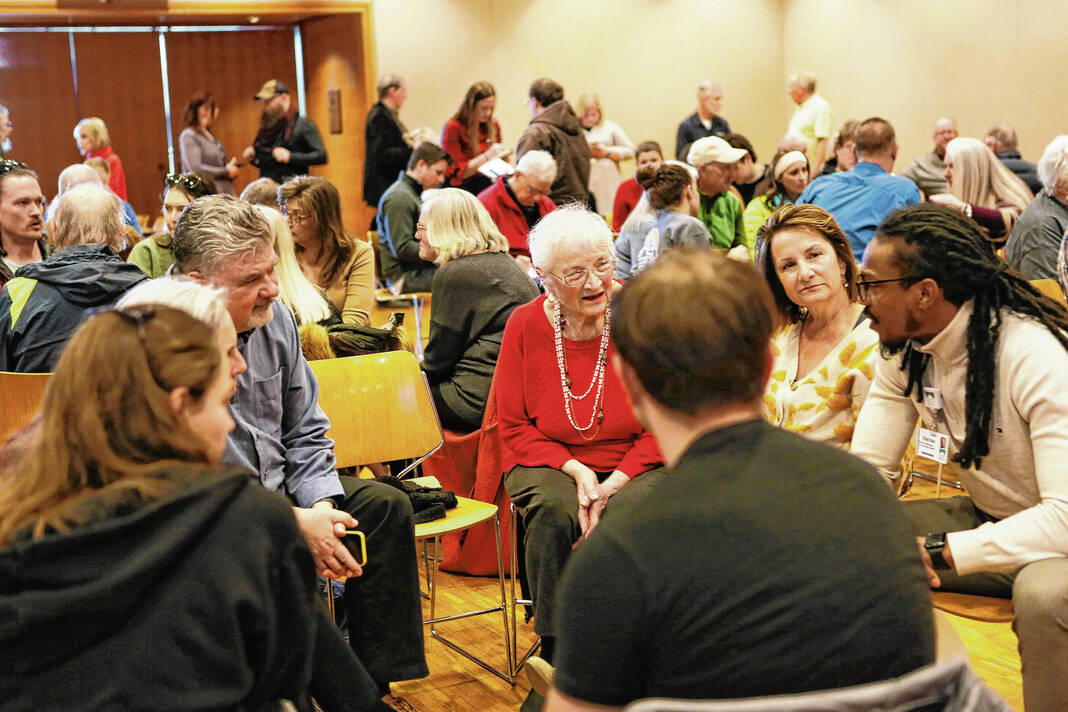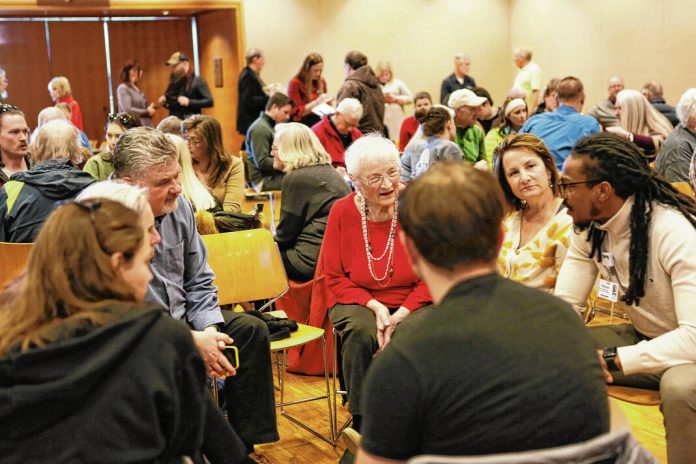
Carla Clark | For The Republic People gather into groups to discuss the housing needs during the Town Hall meeting for the city of Columbus housing study and needs assessment led by RDG Planning and Design, the consultant hired by the city, held in the Cal Brand meeting room, at City Hall, Wednesday, March 20, 2024.
It was a robust showing in the Cal Brand Meeting Hall on Wednesday night as community members shared their thoughts on the housing situation in Columbus. The most commonly mentioned topics included the need for more affordable housing and how the city could incentivize that plus ways to help the unhoused population.
The town hall was part of the early stages of the first housing study the city has commissioned in 12 years.
RDG Planning & Design is the consultant for the study and representatives from the firm, Charlie Cowell and Maya Struhar, led the town hall.
“This is really a fact finding session, we’re trying to gather ideas as for what you think about housing in Columbus,” said Director of Community Development Robin Hilber. “This is going to be a holistic study, it’s going to be a database. So what Charlie and Maya hope to do is get census data, demographic data, anything else that they can come up with for our area, and put that together with ideas that we’ve got. They’ll be back in July or August then with the final product to show us what they’ve come up with.”
The meeting included a brief introduction from RDG, break-out discussion groups, and a hall-wide conversation summarizing the various discussion groups’ thoughts.
“We’re just really trying to absorb as much information as we can, we don’t know what we don’t know,” said Cowell. “That’s really what we’re hoping (for) tonight, you can help steer us in the right direction on where we should be looking.”
Cowell said the first part of the study will consist of looking at things like census data, multiple listing service data, and building statistics.
“And then the qualitative data, which is actually a lot more important for us to hear directly from people, what they’re experiencing, what experiences they’ve had in the housing market, what others are seeing happening, what the needs are, and then comparing that with some of the data sources that we’re following,” Cowell said.
Once all the data is gathered, RDG will begin to develop strategies to address where the data demonstrates there is the most need.
The firm has done similar studies in Iowa, Kansas, Bloomington, and the greater Lafayette region.
Along with the town hall, RDG has already organized a few smaller sessions with community members. RDG will be back again in April and will present the study’s findings once it is complete by August.
Those who did not attend are still encouraged to provide their thoughts at surverymonkey.com/r/ColumbusHousingStudy.
RDG is planning more focused surveys too— one for landlords and a workforce study for employers to provide to their employees.
After smaller groups shared their thoughts amongst themselves for 20 minutes, the whole group came together to share some of what they talked about.
Community-member Sandy Sherman, who works in real estate, discussed how the availability of low maintenance housing, “something that is a condo type without stairs, something on one level” could help free up housing stock for younger generations by giving the older population an alternative.
“I get a lot of calls for ‘I want to sell my house that I’ve lived in for 50 years and I want something low maintenance or something a little more easy for us to live or walk away from and go to Florida for the winter,’ we just don’t have that.”
Something similar for both younger and older populations is something Hillary Maple suggested.
“Maybe a community in which could appeal to both ends of that spectrum.”
Another group talked about a potential community land trust, where a non-profit, working with the city, could use city-owned assets to provide first-time home buyers or retirees with smaller, lower payment homes.
“By having a nonprofit working with the city we can keep the cost of these houses down, we determine what the cost will be on that land so that we aren’t always beheld to all the changing market costs,” Kermet Key said.
Some community members suggested RDG hold similar town halls for the unhoused population, those 20 to 30 years old, and for those incacerated at Bartholomew County Jail to get a more comprehensive look at the needs of the different groups. One person said RDG could reach out to Love Chapel in order to organize to hear feedback from the unhoused.
Stephanie Zhang outlined the cost burden of housing that she said many in the community are feeling, but also said that burden is compounded for those in recovery.
“Safe, quality, affordable housing is just the most important thing to making sure we have a stable path into recovery. And a lot of time, if you have a felony on your record or addiction on your record, people aren’t able to find places that are safe.”
A couple community-members brought up the luxury apartment development being built at Sixth and Washington Streets, which the city supported with a $5.8 million subsidy despite public protest. Several hoped the city would do something similar to incentive affordable housing.
One question posed by RDG asked what attendees saw as Columbus’ most significant housing priority. Zack Patchett said the city has shown their priority is mixed income housing.
“That’s what they will say will change the housing stock to redistribute and then the people at the bottom will benefit,” Patchett said. “I wish our city would just flip that mindset and start focusing on improving life for people at the bottom first, so that way we all can benefit and be raised up as a community, as opposed to just waiting for something to come along and make things better for people.”
“The free market is not going to solve this problem, it’s been trying to for awhile, but they’re most interested in making a profit out of this as a problem so that they can keep on solving it.”
Patchett said the wait list for Section Eight housing in Columbus is more than one year long, leaving many with nowhere else to go but the street.
“That’s my concern about the potential outcome coming from the study, is that we will just pick some other solution that some other communities already tried and failed. So I really hope that if we’re going to do something as a result of this study, that it’s going to be something new, innovative and prioritizes low income people first and foremost, and the lowest income, remember, being zero.”

